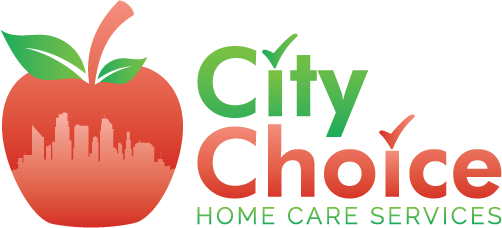How Home Health Aides Can Help
With aging comes a natural decline in cognitive abilities, muscle tone, and skin elasticity. Cognitive functioning starts to diminish after the age of 30 and gradually progresses throughout life. This decline manifests as slower thinking, difficulty finding the right words, and difficulty in maintaining attention and multitasking.
To mitigate the impact of cognitive impairment, older adults should engage in mental stimulation exercises as often as possible. These exercises significantly slow brain aging, delay cognitive decline and keep the mind sharp for an extended period.
Home health care agencies or providers will do well to incorporate and prioritize mental stimulation activities, in addition to their other care programs, in the overall care plan they have for their order clients, so that these seniors can lead more fulfilling and generally have a higher quality of life.
The Importance of Mental Stimulation for Seniors
Just like muscles, the brain requires ongoing challenges to retain its sharpness in thinking, reasoning, problem-solving, and recalling essential skills. Without engaging in mentally demanding tasks, cognitive abilities gradually diminish over time.
While younger individuals naturally encounter various activities that help maintain and even enhance their cognitive skills, many older adults, particularly those who are retired and live alone, experience a decline in stimulating activities compared to their younger years. Following a repetitive routine can contribute to the reduction of cognitive abilities.
To address this issue, it is important to often engage in mental stimulation tasks specifically designed to preserve mental acuity. However, many elderly individuals may not know how to integrate these tasks into their daily routines. This is where the guidance of an experienced home health care aide or other such professional can be invaluable. These aides can teach a range of mental exercises that not only improve analytical thinking but also enhance relationships and overall health, and foster a sense of accomplishment.
5 Mental Stimulation Exercises for Improved Cognitive Function
A home health care aide uses a combination of various mental stimulation exercises to challenge the mental and cognitive skills of seniors they care for, some of which are:
- Recall Testing: Memory loss can be a significant concern for older adults as it can lead to fears of losing cherished memories and identities. Additionally, memory impairment can give rise to behavioral, personality, and mood-related issues.
To mitigate these risks, healthcare aides employ various recall testing exercises that assess and challenge the ability to retrieve and remember previously learned information. During these tests, the aide presents a series of items, such as words, numbers, or images, which seniors are later asked to recall from memory.
This practice serves to ensure that older adults can easily remember and retrieve specific information, helping to maintain their memory function.
A few recall-testing exercises home health care providers use for seniors are:
- Free Recall: Seniors are provided with a list of words, and later, they are prompted to recall as many items as they can, regardless of the order.
- Serial Recall: Seniors are challenged to recall the previously learned list of words in the same order, testing their sequencing skills.
- Cued Recall: Seniors receive cues and hints as aids to assist them in recalling specific items from their memory
- Musical Activity: Various studies show that listening to music can improve certain cognitive skills like language fluency, memory, recognition, and more. Another study suggests that actively practicing and listening to music produces gray matter in the brain, which is crucial for preventing cognitive decline.
The gray matter contains millions of neurons that process information and provide a relevant response. This brain area is responsible for controlling memory, emotions, and bodily movement. Due to this, a home health care aide can leverage music or musical instruments to ensure older adults have healthy neurofunctioning.
Incorporating music into the lives of seniors offers a multifaceted approach to stimulating various brain areas. Professional caregivers utilize songs of different genres and tempos, prompting older adults to listen attentively to the lyrics and engage in mental processing. Encouraging them to recall the lyrics or sing along further enhances memory and cognitive function.
Music not only contributes to cognitive abilities but also acts as a mood enhancer by triggering the release of dopamine in the brain. Increased dopamine levels lead to reduced feelings of depression and anxiety, creating a positive impact on emotional well-being. - Mathematical Testing: Engaging in mathematical activities serves as a powerful tool to stimulate the brain and maintain its sharpness well into midlife and beyond. Recognizing this, home health care aides can incorporate math testing to refresh crucial cognitive functions, such as reasoning, logical thinking, memory, and problem-solving skills.
During math testing sessions, aides tailor the difficulty level of the problems to match the skill level of the older adult. They may present simple math problems or introduce more complex ones, depending on the individual’s abilities. Some aides even leverage technology and apps to provide a diverse range of arithmetic challenges, making the entire process enjoyable for senior adults. - Word Picture Visualization Testing: Word picture visualization is the process of creating mental images or visual representations after receiving verbal descriptions or written words. This activity engages a person’s imagination as they have to mentally paint a picture in their mind.
For this exercise, the home health care provider names an object, place, event, or person and asks the senior adult to imagine what they look like. Once they have an image in their mind, the aide asks them to make a story about this character or place.
When seniors mentally visualize this information, it enhances their comprehension, memory retention, and overall engagement with external stimuli. This is because creating a vivid mental image of a concept makes it easier to recall and retain information.
Moreover, visualizing verbal directions ensures that the seniors are solely focused on the aide, which helps them maintain focus and ignore distractions. In some cases, healthcare aides even connect this exercise with memories of older adults. As a result, they can more easily recall their precious memories, reducing the risk of memory distortion. - Puzzle and Board Game Activity: Making puzzles and playing board games is an amazing way to strengthen brain cells and cognitive skills. Working on a puzzle can improve the connections between brain cells and even lead to the construction of new and healthy neural pathways. Due to this, the mental speed of thought processes increases, which is important for enhancing short-term memory.
Therefore, the health care aide encourages older adults to play with puzzles and even hold board game matches, including the likes of chess, scrabble, monopoly, checkers, and more. Games like Scrabble are also effective in improving vocabulary as they have to use innovative words to win the game.
Puzzle and board games also require fine motor skills and hand-eye coordination to assemble puzzle pieces, scrabble tiles, or shuffle cards. This can even refine the motor skills of older adults, allowing them to handle daily tasks with dexterity.
Wrapping Up
Cognitive abilities, such as logical reasoning, problem-solving, multitasking, planning, and more, start to decrease after midlife. To prevent or slow down the onset of cognitive decline, seniors have to engage in certain mental stimulation exercises.
This is where home health care aides can help, as they are trained to use certain techniques that can challenge older adults, and just as importantly, within the comfort of their home. For example, they use recall testing and word picture visualization testing to improve short-term memory and recollection of memory. They also use musical activity to increase gray matter in the brain that regulates emotions, memory, and body coordination. Additionally, home health care aides may introduce math activities, puzzles, and board games to keep the mind sharp, ensuring a better lifestyle.



